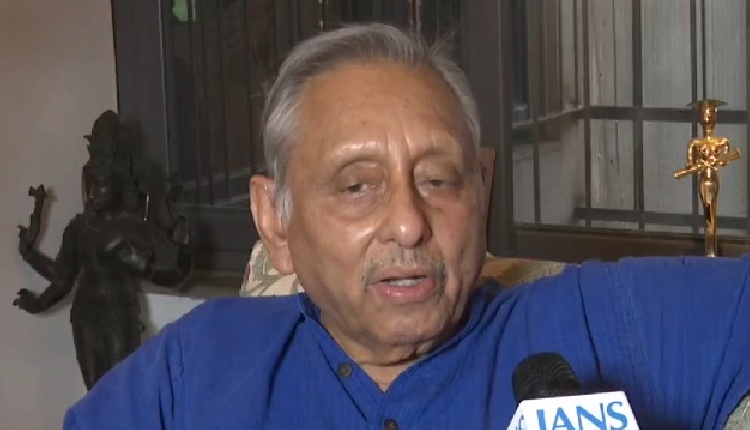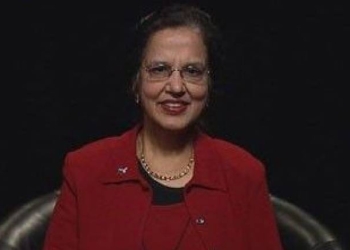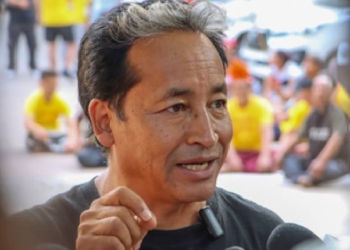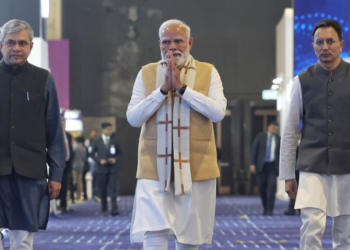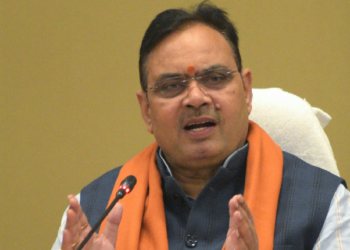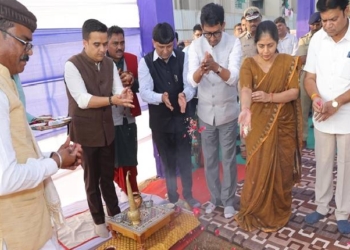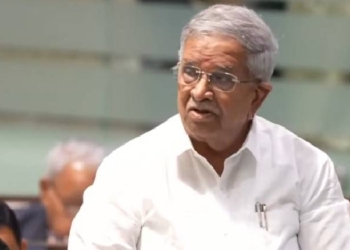New Delhi: Senior Congress leader and former diplomat Mani Shankar Aiyar on Thursday said in an interview with IANS that the beleaguered former PM of Bangladesh, Sheikh Hasina had been most cordial to India and the government did the right thing by extending her a helping hand in times of crisis.
The veteran Congressman also concurred with reports of foreign interference in Bangladesh’s political crisis.
Q: How do you see the unrest in Bangladesh and ouster of Sheikh Hasina?
A: In the last 15 years, Bangladesh has witnessed remarkable economic progress under Sheikh Hasina’s leadership. It’s surprising to see that the student movement turned into a revolution, resulting in dramatic changes within 15 years. This led to her abrupt exit from the country.
Q: Bangladesh has plunged into a major crisis. How do you see the country moving from here?
A: Bangladesh witnessed a rise in unemployment despite economic growth. Opposition parties are unconvinced over its democratic processes. They didn’t participate in Parliamentary elections this year and lodged protests claiming that it was not a free and fair election. That is not the situation in India but similar doubts are beginning to emerge here. We need to learn from this. Becoming a ‘ Viksit Bharat’ is one thing but will it be a free and democratic India? Such questions raise concerns that we need to be cautious about.
Q: After escaping Bangladesh, Sheikh Hasina is currently stationed in India. How do you see the government’s stand on giving her a safe refuge?
A: India has welcomed her, and we are happy about it. Until Sheikh Hasina decides where she wants to go, she is welcome to stay here. Among all the Prime Ministers of Bangladesh, Sheikh Hasina has been the best Prime Minister for India. Because of her secular thinking, she protected and contributed a lot to the development of the Hindu community in Bangladesh and included them in the larger society. She has been a good friend to India.
Q: Do you think that foreign influences fomented political turbulence in Bangladesh?
A: There might have been interference from Pakistan and the US, but there is no evidence to support this claim.
Q: What is your assessment of India-Bangladesh relations, in the backdrop of the coup?
A: A new government will be formed in Bangladesh soon. Whoever forms the government, India should maintain good relations with them. Our relationship with Bangladesh should not deteriorate because of our support for Sheikh Hasina. I am not objecting to it, she is our close friend and India has always provided shelter and security to friends in times of need including the Dalai Lama and more, it’s in our legacy.
Q: What would you like to say about Pakistan’s stance on the situation in Bangladesh?
A: Some people in Pakistan are happy about the situation in Bangladesh. As far as I know, the Pakistani government has not taken any official stance.
Q: How should India tackle Pakistan, given that terror attacks continue to bleed the Valley? What’s your view?
A: To safeguard our citizens, it is very important to maintain talks and engage in dialogue with Pakistan. The world should see that a nation aspiring to be a ‘Vishwa Guru (teacher of the world)’ is trying to resolve issues with its neighbouring countries.
Q: In your view, what road map should India acquire for becoming a developed nation?
A: It is important to be both developed and free. Seeing ‘developed’ and ‘free’ separately would be a mistake. In the last 10 years, there has been much division and schism in society. It is important to have a united India that embraces diversity, as that existed in the pre-2014 era. In the last 10 years, there has been a decline in peace and harmony. In the last elections, people did not support the ruling dispensation as expected by BJP leaders. The Prime Minister’s victory margin fell in Varanasi and a Samajwadi Party (SP) leader trounced the BJP’s nominee in Ayodhya. These are lessons to learn from.
(IANS)




